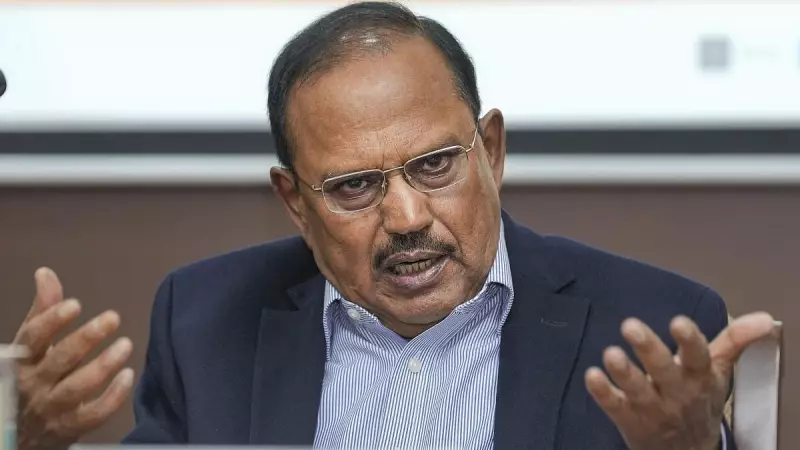
National Security Advisor Ajit Doval has found himself at the center of a digital controversy after claiming that an old video showing him making statements about ISI recruitment patterns is a deepfake. The video, which has resurfaced on social media platforms, shows Doval discussing recruitment strategies of Pakistan's Inter-Services Intelligence agency.
The Deepfake Claim and Fact-Check Revelation
On November 17, 2025, Ajit Doval publicly declared that the viral video clip was artificially created using deepfake technology. Through his statement on CNN News18, the NSA emphasized that he never made claims about more Hindus being attracted to ISIS than Muslims. The controversy gained momentum when journalist Manoj Kumar Gupta broke the exclusive story, bringing the matter to national attention.
However, independent fact-checking investigations have revealed a different story. The original video was traced back to a YouTube channel operated by the Australia India Institute, with the content dating back to 2014. Digital forensics experts examined the footage and confirmed its authenticity, contradicting the deepfake allegations.
Historical Context and Content Analysis
The controversial video features Ajit Doval speaking at an event organized by the Australia India Institute over a decade ago. In his address, the security expert made observations about recruitment patterns, specifically mentioning that Pakistan's ISI had successfully recruited more Hindus than Muslims in certain contexts. These comments, made before Doval became National Security Advisor, have taken on new significance in today's politically charged environment.
The timing of the video's resurgence coincides with increased concerns about digital misinformation and deepfake technology. Security experts like General KK Sinha have weighed in on the discussion, highlighting the growing threat posed by sophisticated digital manipulation tools that can potentially undermine national security narratives.
Broader Implications for National Security
This incident highlights several critical issues facing India's digital landscape and national security apparatus. The ease with which historical content can be repurposed and disputed in the age of advanced AI technology presents new challenges for maintaining information integrity. Security agencies now face the dual task of combating both genuine security threats and digital misinformation campaigns.
The controversy also raises questions about accountability for historical statements made by public figures before they assumed official positions. As India continues to navigate complex security relationships with neighboring countries, particularly Pakistan, the verification of such statements becomes crucial for informed public discourse.
Journalists Siddhant VM and Griha Atul have been actively covering the unfolding story, providing regular updates on the fact-checking process and reactions from various stakeholders. The incident serves as a stark reminder of the importance of media literacy and critical evaluation of digital content in the modern information ecosystem.






